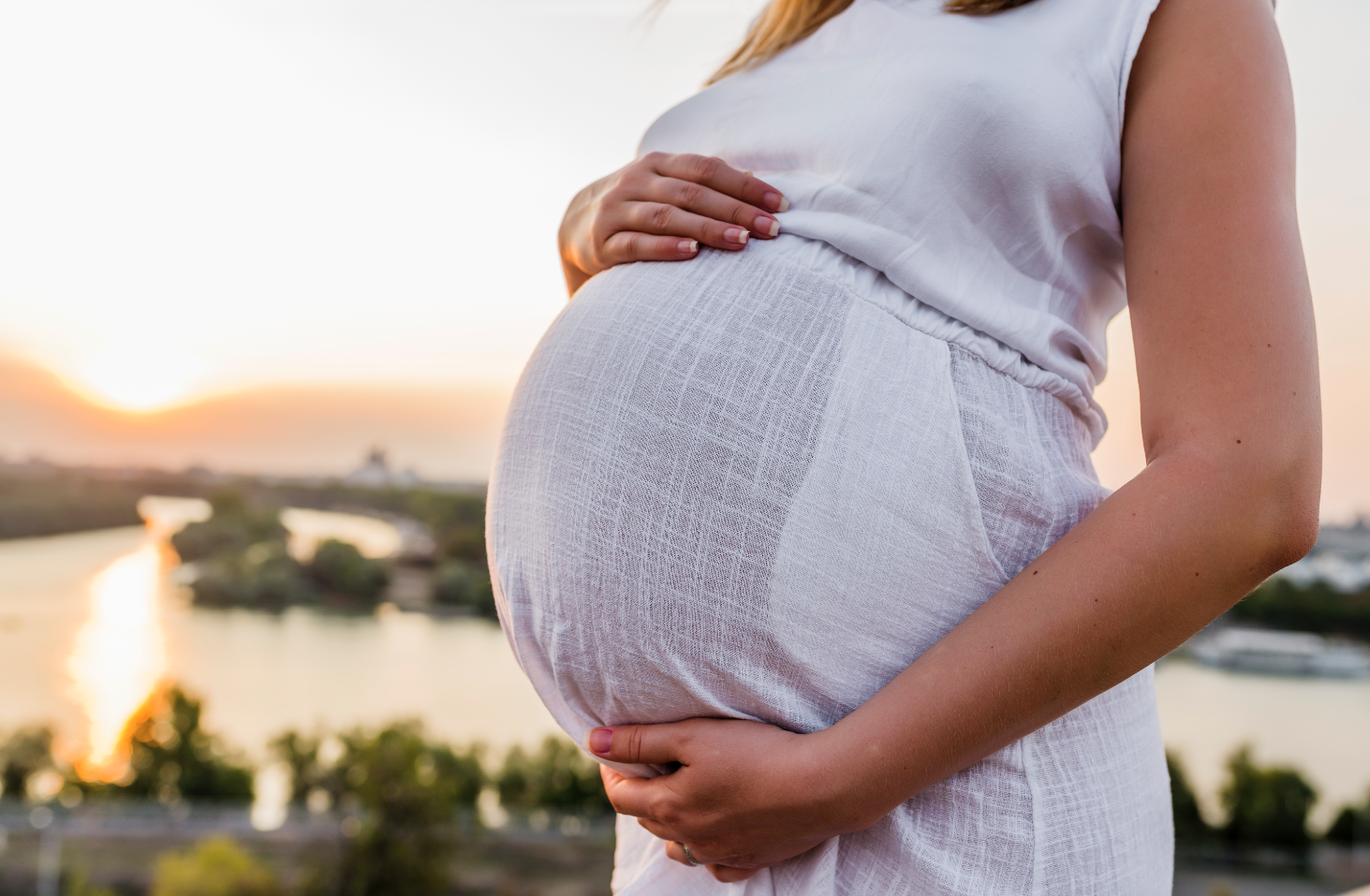
There’s been a lot of buzz recently about the age when women choose to have children. The New York Times just published an article detailing the different ages of first-time mothers in America based on geography and education. Carrie Underwood caused a stir with her recent Redbook interview because she said, “I’m 35, so we may have missed our chance to have a big family.” Although I tend to side with the women who were upset by this comment, I also understand where Carrie is coming from.
People often ask me if I’m going to have another baby, and I’m not sure. I am a mom of two extremely active little boys and can’t imagine adding a third child into the mix right now. The chaos level at my house would be unreal. That doesn’t mean that I wouldn’t consider having another baby down the road, but now that my 35th birthday is approaching, I feel like I'm on a deadline.
It seems as though the age of 35 is a line in the sand for women with signposts on the far side warning Beware and Get Pregnant at Your Own Risk. The medical community refers to a pregnant woman older than 34 as “geriatric,” “elderly” or “of advanced maternal age.” There are countless warnings about pregnancy after the age of 35, but why is that?
After doing a bit of research on my own, I discovered … that there is a lot of scary information online about giving birth after 35! According to the American College of Obstetricians and Gynecologists, the risk of having a baby with a chromosome problem is 1 in 1,480 at age 20 years; 1 in 940 at age 30 years; 1 in 353 at age 35 years; and 1 in 85 at age 40 years. Yikes!
However, I know several women older than 35 who gave birth to healthy babies, and goodness knows there are plenty of celebrity birth announcements from actresses older than 35. I’m looking at you, Eva Longoria. I keep flip-flopping between thinking getting pregnant again is perfectly safe or way too risky. Turning to an expert seemed like the best approach, so I interviewed an OBGYN and a pediatrician about the risks of childbirth after age 35.
“Studies show that women who postpone childbearing may have increased risks of infertility and miscarriage, premature delivery and stillbirth, gestational diabetes, bleeding complications, hypertensive disorders of pregnancy, C-section, chromosomal abnormalities in babies, growth retardation in babies, and delivering multiples,” says Dr. Natalia Meimaris, clinical assistant professor of Obstetrics and Gynecology at the New York University School of Medicine and a gynecologist in Manhattan.
I asked if there is a significant difference in the risks for a 30-year-old giving birth versus a 35-year-old.
“It depends on many factors," Meimaris says. "There is definitely increased risk of chromosomal abnormalities in babies. Pregnancy is a physical challenge to mother’s body, so a younger and more physically fit mother will have a healthier pregnancy.”
Dr. Mary Thomas let me know that “the risk of conceiving a child with trisomy [a chromosomal abnormalitiy] is 1 in 500 for a 30-year-old woman but 1 in 200 at age 35. That’s more than a two-fold increase in risk. In addition, as we get older we are at risk for more age-related diseases that hurt a growing fetus. Hypertension can cause poor fetal growth, and diabetes can cause macrosomia (a baby that is too large) as well as hypoglycemia in a newborn.”
OK, at this point, I am freaking out. The professionals seem to be confirming all the frightening information I was reading online. Clearly I should not attempt to have another baby at my age, right? Not so fast. After a deep breath and some ice cream for comfort, I looked into whether there is anything women can do to decrease the risks, and the answer is yes.
What can women over 35 can do to increase their odds of a successful delivery?
“Preconceptional and prenatal care is very important for healthy pregnancy outcome,” says Meimaris. “My advanced-age mothers have overall better outcomes than younger patients elsewhere because we do not wait until a problem presents itself. I start with preconceptional counseling and testing, start prenatal vitamins, and address and treat all potential problems prior to pregnancy. I also make sure future mothers get vaccinations, nutritional balance, and genetic testing early in pregnancy.”
Meet with my obstetrician before getting pregnant and take prenatal vitamins? No problem. Eat healthy foods? That’s doable. Just discussing the proactive ways I could increase my chances of a healthy pregnancy is helpful; this way I can focus on the factors I am able to control. After all, it’s not like I can go back in time and get younger…
Plus, the information about pregnancy over 35 isn’t all bad, even though it can seem that way. There are studies that show older mothers have a longer life expectancy than moms who had their last child before their 30th birthday. Other studies show that children born to older moms are smarter. Those are some definite pluses!
Thomas also shared her positive take on older moms: “I can say that in my relationships with mothers, I find that those over 35 tend to be a bit more calm and self-assured. That is not to say that there are not exceptions on both ends of the age spectrum, but we women tend to continue to evolve with age. Older moms have had time to make and recover from more mistakes, and so they are a bit more comfortable with readjusting their plans for life.”
According to the latest data from the Centers for Disease Control and Prevention, the number of women having babies in their 20s has declined while the number of women having babies in their 30s and 40s rose, with the number of American women older than 35 who give birth increasing each year.
If I do decide to have that third kid, I will actually be trendy.




